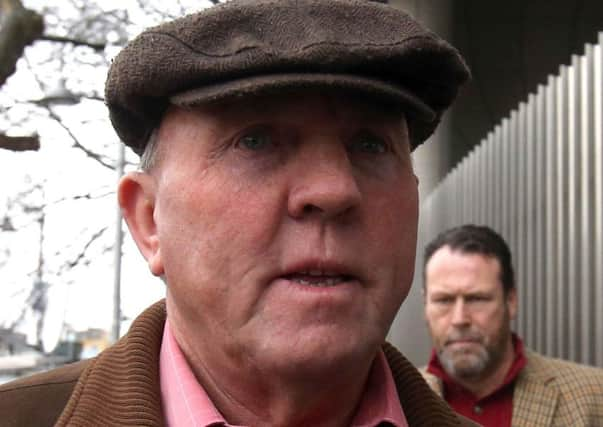'˜Slab' Murphy tax conviction appeal dismissed


The prominent republican, 67, was found guilty of nine charges at the non-jury Special Criminal Court in Dublin last year and imprisoned for 18 months.
In November, he launched a three-day bid to overturn the verdict in the Court of Appeal.
Advertisement
Hide AdAdvertisement
Hide AdLawyers for the bachelor farmer claimed he had been unfairly jailed because of a misunderstanding by prosecutors, arguing he was being pursued for taxes already paid by others in his family.
Murphy, from Ballybinaby, Hackballscross, Co Louth, on the border with Northern Ireland, was found to owe the Irish exchequer taxes, penalties and interest of almost €190,000 (£147,000) for tax dodging from 1996 to 2004.
He was charged with knowingly and wilfully failing to make tax returns and doing so without reasonable excuses.
The trial court found he did not furnish Ireland’s Revenue authorities with a return of income, profits or gains or the sources of them over the period but received €100,000 (£73,000) in farm grants and paid out €300,000 (£220,000) to rent land.
Advertisement
Hide AdAdvertisement
Hide AdMurphy sought to overturn his conviction on 53 grounds of appeal.
The Court of Appeal said the scale of the written submissions in the case was daunting, extending to more than 350 pages from Murphy and over 100 pages from the Director of Public Prosecutions.
Mr Justice Sean Ryan, president of the Court of Appeal, said it was not tasked with a reconsideration of the entire trial.
But it essentially had to consider if the Special Criminal Court was entitled to find Murphy guilty, whether it was a satisfactory judgment and whether there was any reasonable doubt in the case.
Advertisement
Hide AdAdvertisement
Hide AdIn a 94-page ruling, Mr Justice Ryan said the accused could be in no doubt as to the reasons that led the Special Criminal Court to its conclusions.
The Court of Appeal had no difficulty with the reasoning of the ruling, which, he said, reflected the fundamental simplicity of the issue on the “counts in the indictment, the strength of the prosecution case and the essentially hypothetical nature of the defence.”